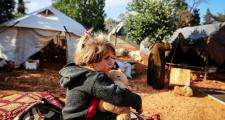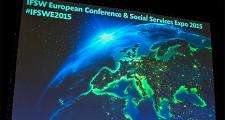Social work is a progressive global force for human rights & social justice

The world has been described as experiencing a ‘polycrisis’, as a coming together of multiple challenges affecting the world simultaneously. This includes the ongoing impact of the COVID-19 pandemic; violent conflict and protracted wars, with mass displacement of people; the surge in global food and energy prices; unprecedented climate change; the impact of inequality, oppression and prejudice; and political uncertainty and rhetoric, leading to increased instability across the world. There has been an abrupt, non-negotiated withdrawal of humanitarian funding and cuts and reductions in development assistance by certain countries, with resulting rapid reduction in critical assistance impacting on millions. Tariffs on all countries announced by the President of the United States, and consequential responding tariffs by the EU, China and others. will cut income which could result in higher taxes and further cuts to benefits and public sector spending. The apparent reshaping of international relationships and global alliance. pose threats to global protective framework and global solidarity
These multiple challenges have had particular impact on vulnerable people and low-income countries, exacerbating existing inequalities in income, health, education, and social infrastructures. The World is not on target to reach the 17 Global Sustainable Development Goals (SDG’s), with only 16% on track to be achieved by 2030. This has an impact on all groups but particularly children, women, people with disabilities, older people and indigenous people.
As social workers we need to demonstrate solidarity, highlighting the impact of global poverty, instability and environmental degradation, especially for those that are most vulnerable. The English historian Adam Tooze has described the current crisis as not being a personal, private experience, but a collective experience. The polycrisis has also been linked to the failure to recognise the industrial (human domination over nature)- colonial paradigm (Western domination failing to recognise and/or include indigenous experiences and ways of knowing). In a world distorted by rarefied narratives of Western growth and issues of cultural eroding we need to highlight new insights and solutions. As social workers we are committed to a unified approach emphasising solidarity, inclusivity and global interconnectedness, with human rights and social justice perspectives as most fundamental in our values system. Tackling major challenges and building an era of global progress and solidarity is dependent on collective action.
BASW continues to campaign for recognition and support for all citizens through a commitment to the global social work community and as a progressive force for human rights and social justice. At the International Federation of Social Workers (IFSW) Global Meeting in Panama in 2024 the motion presented by BASW, speaking out about the authoritarian and repressive government on the lives of people was unanimously accepted. This highlighted the importance of showing respect for the human rights of all peoples, to base arguments on evidence not on conjecture, to use careful and respectful language in political dialogue, and to avoid inflaming racial and cultural tensions. We continue to press the British government to honour its commitment to overseas development aid, reduced from 0.7% of gross national income to 0.5% in 2000 and 0.3% in February 2025. We will continue to demonstrate cooperation and solidarity in global responses and solutions through work with social workers, and other social work organisations, for example the Independent Forum of Commonwealth Organisation for Social Work, and in our role as a member of the international social work community, for example through the IFSW.
As social workers we recognise the complex systems in which people live and we work, with a constant need to connect, adapt and learn from one another. We need to build on the transformational power of international approaches to build effective collaborations and networks for action. We need to tell ‘different’ stories’ that challenges and reflects the reality of experiences that bring people together, rather than divide them. We need to nurture global identities and create positive messages on which we can build cooperation, alliances and hope.
